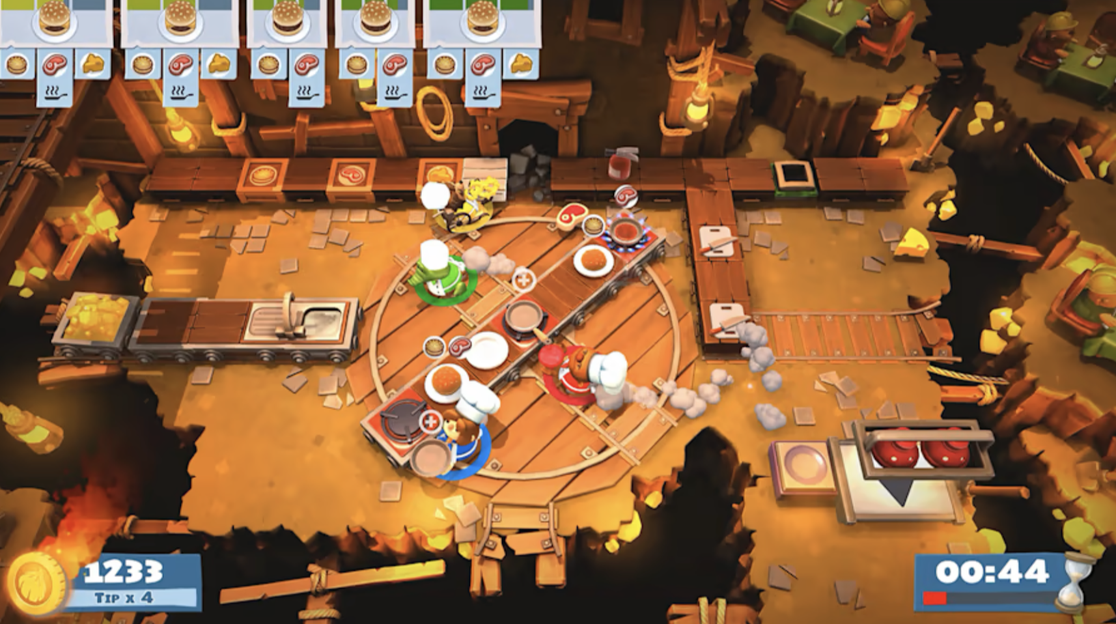Plus: Advice from gamer parents | Tuesday, July 26, 2022
| | | | | | | | | | | Axios Finish Line | | By Mike Allen, Erica Pandey and Jim VandeHei ·Jul 26, 2022 | | Jul 26, 2022 | | Welcome back. We're at FinishLine@axios.com. - Smart Brevity™ count: 388 words ... 1½ minutes.
| | | | | | 1 big thing: Demystifying video games |  | | | Illustration: Aïda Amer/Axios | | | | There's no instruction manual for working video games into family life. But if you're a parent, you don't have a choice, Axios Gaming author Stephen Totilo writes. - Why it matters: Games can be fun hang-out spaces, digital canvases for creativity — and safe spaces for learning how to win, lose or chip away at a goal that might be hours, days or weeks away.
🧠 What you can do: The most important thing a grown-up can do when bringing games into a kid's life — or, more likely, getting dragged by a kid — is to find ways to experience games with them. - That doesn't necessarily mean mastering Call of Duty.
- It does mean introducing gaming to a child as something they do with an older sibling or guardian. That will help instill healthy habits about what they play, how long they play and what they get out of it.
⚠️ Safety tips: Check console settings to limit options for voice chat. - Remind kids to be as careful around online strangers as they are in real life.
Overcooked! 2. Screenshot: Team17 🪜 Next steps: Many video games include options to play together — or lend themselves to taking turns. Go deeper: Search ESRB.org (Entertainment Software Rating Board) for game ratings. Share this story. |     | | | | | | A message from Axios | | A better way to communicate with stakeholders | | |  | | | | A difficult truth: You could have the smartest people, strongest strategy, endless capital — but your team is set up to fail without clear communication. That's why we built Axios HQ, a powerful tool that untangles uncertainty and streamlines communications. See how we use it at Axios | | | | | | 🎮 Advice from gamer parents | | Stephen Totilo recently asked the parents who subscribe to our Axios Gaming newsletter to share their advice. Top tips: - Many readers start by letting their kids watch them play, instilling curiosity as observers.
- Ages 4-6 were common starting points for putting kids behind the controls.
- Most said they were always present when their kids played. Reader Patrick said it became a bonding moment, especially during COVID lockdowns, when he'd take an hour break from working at home to play with his children.
- Words of encouragement are key, since early gamers struggle a lot. "Always praise them for never giving up and mastering the skills involved," wrote Casey, whose three daughters are all gamers.
Get Axios Gaming. |     | | | | Thanks for reading. Invite your friends to sign up here. |  | | Are you a fan of this email format? It's called Smart Brevity®. Over 300 orgs use it — in a tool called Axios HQ — to drive productivity with clearer workplace communications. | | | | | | Axios thanks our partners for supporting our newsletters. If you're interested in advertising, learn more here.
Sponsorship has no influence on editorial content. Axios, 3100 Clarendon Blvd, Arlington VA 22201 | | | You received this email because you signed up for newsletters from Axios.
Change your preferences or unsubscribe here. | | | Was this email forwarded to you?
Sign up now to get Axios in your inbox. | | | | Follow Axios on social media:    | | | | | |







No comments:
Post a Comment